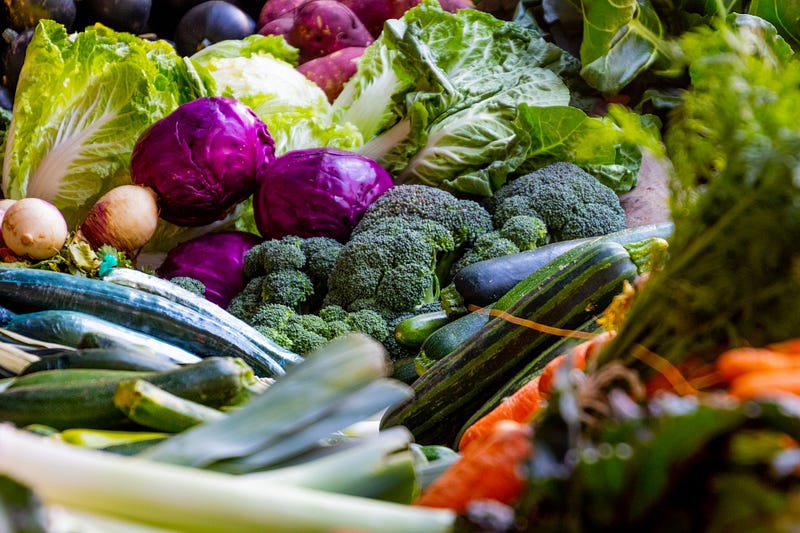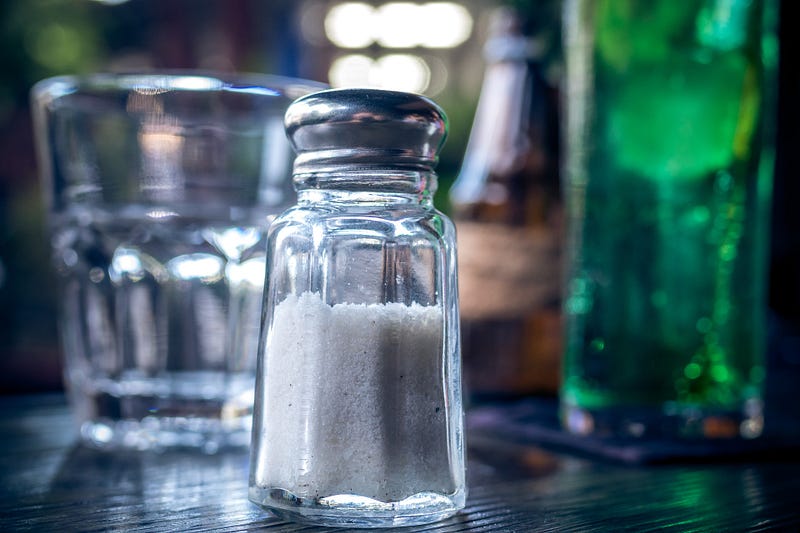Understanding Glyphosate: Is It Really Dangerous to Your Health?
Written on
Chapter 1: The Glyphosate Debate
In today's world, the thought of being unknowingly harmed by pollutants in our food and water can evoke a deep-seated fear. From fluoride in drinking water to pesticides on our fruits and vegetables, the idea that we might be at risk from invisible dangers is unsettling. This context sets the stage for the ongoing controversy surrounding glyphosate.
Recently, headlines have erupted—once again—claiming that glyphosate, the active ingredient in the widely-used herbicide RoundUp, significantly increases cancer risk by 41% among those exposed to it. Given its prevalent use, glyphosate has been subjected to extensive research, raising questions about its potential health implications.

After decades of investigation, we can confidently assert that glyphosate poses little risk to the average individual. Despite recent findings, it seems improbable that glyphosate is a serious health threat.
Section 1.1: Assessing Immediate Risks
The first aspect we often examine is whether a substance is acutely dangerous—essentially, can it cause harm in the short term? Initial research indicates that even at high doses, glyphosate is relatively safe. Its toxicity is comparable to that of table salt, meaning that the risk of immediate harm is minimal.

However, acute safety is just one piece of the puzzle. Most individuals encounter only trace amounts of glyphosate—about 1 to 2 milligrams each month—over their lifetimes. This scenario introduces the concept of chronic exposure, which requires a different evaluation.
Section 1.2: Long-Term Exposure and Animal Studies
To understand chronic exposure, researchers often conduct studies on rodents, as long-term human trials would be both unethical and impractical. The findings from these studies are somewhat mixed. While some suggest a potential cancer risk at exceedingly high doses, other research contradicts this claim. Notably, the doses that indicated risk were astronomically high—equivalent to more than 100 grams per day for an adult, which is around 30,000 times what an average person consumes.

So, while animal studies yield inconclusive results, the real question is: what does the evidence say about human exposure?
Chapter 2: Human Health Research
Many studies have been conducted to investigate the relationship between glyphosate and various cancers. The consensus, derived from a multitude of investigations, is that glyphosate does not appear to be linked to most cancers in humans.
The most significant research involved tracking 55,000 individuals over several decades, concluding that those with higher glyphosate exposure did not have an increased cancer risk. This contradicts the alarming headlines.
Does RoundUp Cause Cancer? How Carcinogens are Classified - This video explores how carcinogens are categorized and the implications for glyphosate.
However, a recent meta-analysis specifically examining glyphosate's association with Non-Hodgkin’s Lymphoma found a 41% increased risk among those with the highest exposure levels. Yet, this study has its limitations. It combined various observational studies, which raises questions about the reliability of the results, given the differing methodologies used to measure glyphosate exposure.
Glyphosate can cause cancer - This video discusses the findings related to glyphosate and cancer risk, emphasizing the need for careful interpretation of data.
In summary, even if we take the findings at face value, the absolute increase in risk is only about 0.5%, which is far less alarming than the 41% figure often reported. This statistic pertains exclusively to individuals with extremely high exposure, a situation not applicable to the average consumer.
Final Thoughts: Understanding the Risks
So, why does glyphosate instill such fear? Much of the anxiety stems from a classification by the International Agency for Research on Cancer (IARC), which deemed glyphosate a category 2A carcinogen—suggesting it is "probably carcinogenic to humans." However, this classification does not specify the degree of risk involved.
To put things into perspective, both smoking and processed meats are classified as carcinogens; yet, the cancer risk associated with smoking is substantially higher than that associated with consuming cured meats.
Moreover, a recent court ruling against Monsanto, the manufacturer of RoundUp, has further fueled public concern. However, it’s important to note that legal decisions do not equate to scientific validation.
In conclusion, the evidence strongly indicates that glyphosate does not cause the majority of cancers. While long-term exposure might present a slight risk for specific cancer types among heavy users, the average person consuming foods from the grocery store has no substantial reason to worry about glyphosate. In fact, there is no credible evidence linking it to cancer.
If you found this article insightful, feel free to connect with me on Medium, Twitter, or Facebook!